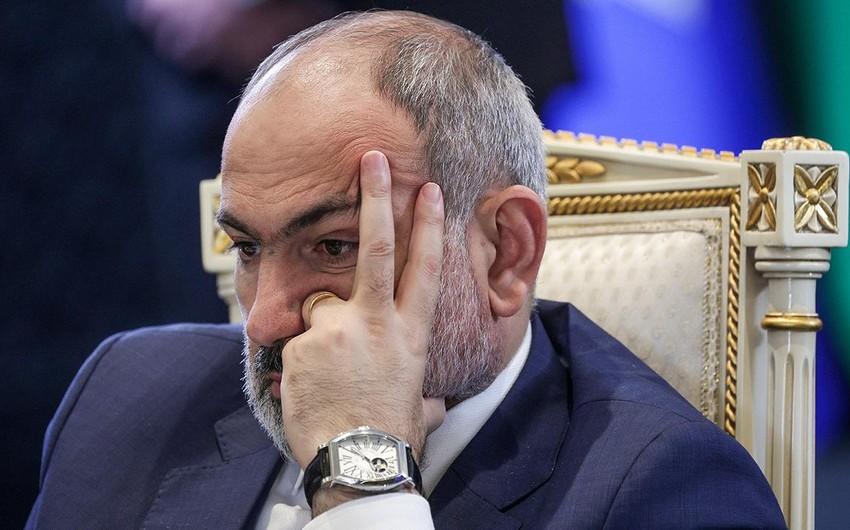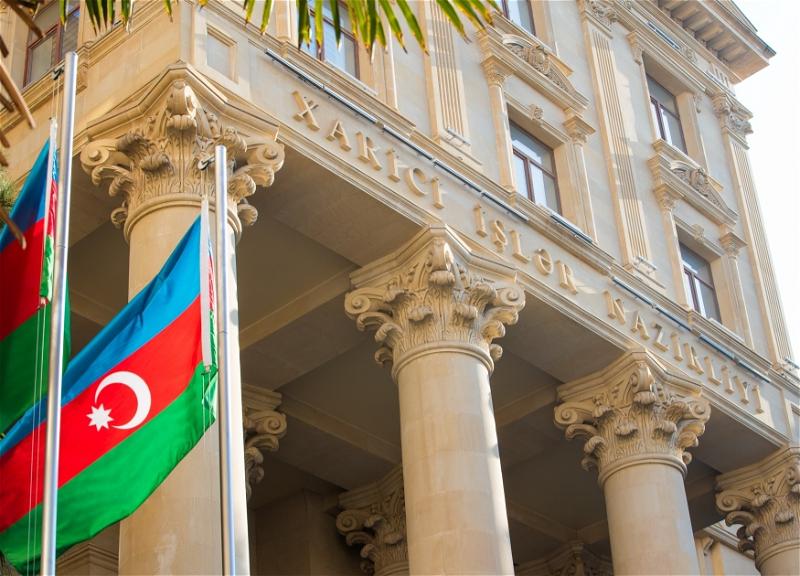Baku opens its doors to the future, while Yerevan stuck in the past Munich goes grim for Pashinyan
The 60th Munich Security Conference was Ilham Aliyev's first international platform, where he confidently and officially announced the Armenian-Azerbaijani settlement's removal from the international agenda. Nikol Pashinyan, on the other hand, was somewhat confused, unable to keep up with the Azerbaijani leader's fast pace due to various circumstances. While Yerevan is still stuck in yesterday, Baku has opened the doors to tomorrow.
The fact that all of Ilham Aliyev's meetings were organised on the initiative of the other side has already been said many times. On the whole, Azerbaijan's position was accepted and taken into account, which obviously doesn't mean that the various Armenian patrons will stop trying to obstruct the peace process. The question is that we do not want peace at all costs. It turns out that all the obstacles are now working against Armenia. Azerbaijan's demands are quite clear: Armenia must amend the law, which contains territorial claims to Azerbaijan, remove references to "NKR" and "Artsakh" from international correspondence, and provide a corridor linking the Azerbaijani mainland to Nakhchivan.
As we know, at the meeting of Ilham Aliyev and Nikol Pashinyan, which was initiated by German Councillor Olaf Scholz, the sides decided to hold a meeting of the two countries' FMs in the near future to discuss the normalisation process. The sides also confirmed the holding of a further meeting of the delimitation commission and positively assessed the compromise reached in December 2023, as a result of which Azerbaijan will host the UN climate conference COP29. We can assume that the meeting will take place without the mediation of the world powers. In this sense, the agreement can be described as historic.

It is true that Pashinyan would be deceiving himself if he did not try to make ambiguous statements that are in some way at odds with his stated intention to seek peace. Moreover, it is sometimes difficult to understand whether he is taking one step forward and two steps back, or two steps forward and one step back, not to mention what the concepts of "forward" and "back" mean to him. At a meeting with US Secretary of State Anthony Blinken in Munich, for example, Pashinyan once again tried to complain about Azerbaijan: "Unfortunately, there is a new phase of strain between Armenia and Azerbaijan at the moment, and recently there has been a new increase in tension, which has caused great losses. Armenian checkpoint guards have been killed on the Armenian border. I would like to discuss this situation with you," Pashinyan said. One can only imagine how much it must have weighed on Blinken, completely bewildered by the situation in the Middle East, to hear the grumpy Prime Minister complain...
The most interesting thing, however, was what Prime Minister Pashinyan said at a meeting with representatives of the Armenian community in Munich and neighbouring states. On the one hand, Pashinyan made a progressive statement that Yerevan remains committed to the agreements previously reached with Baku, but on the other hand, he expressed the following ambiguous ideas: "We went and told the international community that Karabakh should be independent with our right to self-determination. They said we created the right to self-determination (obviously meaning it's an Armenian fiction - ed.) We thought we were waging a conflict against Azerbaijan, but we were waging this conflict against the entire international community, which is unreasonable". The Prime Minister also questioned Armenia's commitment to the Tripartite Declaration, saying that "Russia and Azerbaijan have completely violated their commitments on some points of the Declaration".

The Azerbaijani Foreign Ministry, through its official representative Aykhan Hajizada, immediately reacted. "Regarding the Armenian Prime Minister's statement that 'Karabakh's right to self-determination is not supported by the international community,' it implies not a disavowal of the territorial claims to Azerbaijan but rather an acknowledgement that pursuing such claims solely based on international support is unreasonable. This indirectly underscores the ongoing nature of Armenian claims, highlighting the need to address them by eliminating references to territorial integrity and sovereignty in Armenia's legislative acts and constitution. The viewpoint expressed by the Armenian Prime Minister underscores the significance of international community pressure on Armenia to prevent it from adopting a stance contrary to international law," Hajizada said.
Our Foreign Ministry also commented on Pashinyan's accusation of Baku's violation of the Trilateral Statement: "As for the Armenian side's claim of Azerbaijan's alleged violation of the trilateral statement lacks grounds, as Armenia has not fulfilled its commitments to withdraw its Armed Forces from Azerbaijan's territory and open communication lines."
Yerevan's willingness to meet Baku's demands will now depend to a large extent on how closely the Western powers will monitor Armenia's foreign policy, and how closely Armenia itself will take this "wooing" to heart.
Curiously, Macron was not present at the Munich conference. Scholz did not fail to take advantage of this, drawing attention to himself and acting as a pioneer in promoting a new format of negotiations - without mediators. Macron has been acting suspiciously lately, with clear signs of paranoia - he cancelled his trip to Kyiv, for example, rumouredly fearing an assassination attempt. Be that as it may, the absence of Macron next to Pashinyan has symbolically given a certain air of mourning to Armenia's hopes for a strong European backbone.
It seems that the world has accepted Ilham Aliyev's agenda and now, regarding Azerbaijan, everyone is more interested in the COP29 conference hosted by Baku than the Armenian-Azerbaijani settlement issue.
Of course, Pashinyan has a hard time. He is forced to make populist statements to satisfy the revanchist sections of Armenian society, as he is unable to change the situation dramatically. However, with the indefinite postponement of peace, Armenia is becoming more and more of a province. Sooner or later, ordinary Armenians will realise the cost of their stubbornness. Who knows, perhaps Pashinyan is waiting for the hour when Armenians take to the streets urging him to meet Azerbaijan's just demands. And that will be the best option for him.








